Episodes
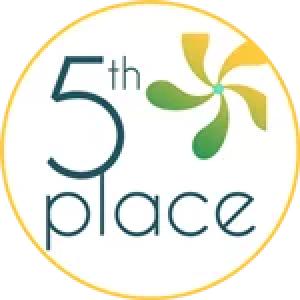
Friday Sep 23, 2022
Ep 144 - Matthew & Chantal of 5th Place on Emotional Fitness
Friday Sep 23, 2022
Friday Sep 23, 2022
This month's episode focuses on the psychology of emotions and the need to respect them. On the one hand we do not want to be controlled by negative emotions, but on the other, we cannot simply will them away. Further, we need positive emotions in order to live rich and loving lives; we cannot simply force our way forward forever.
Not respecting our emotions leads them to hijack us in many ways. A notable example is compulsive behavior or obsessions. The extreme versions of these we call addictions.
Matthew and Chantal developed their emotional fitness practice in order to reach people across a variety of cultural and economic backgrounds in South Africa, children in particular. Learn more about Matthew and Chantal's work at 5th Place.
Note: Paul received a one month access pass to the 5th Place class on emotional fitness prior to recording this episode. Nothing else of monetary value was exchanged.

Tuesday Aug 30, 2022
Ep 143 - Scott Gazzoli and Spirit over Show
Tuesday Aug 30, 2022
Tuesday Aug 30, 2022
For August Paul interviewed Scott Gazzoli of the Causing the Effect podcast. He's a wealth manager in Brooklyn who has been through a long and harsh spiritual journey. We touch on fitness and the psychology of achievement and spend the most time talking about the deceptiveness of material goals--money, sex, physical pleasure--how spiritually and psychologically they turn out to be deceptive and destructive.
Be sure to check out:
Scott: Causing the Effect Podcast, on YouTube, Twitter, and Instagram
Our interview
Scott's recommended read, Mindfulness in Plain English
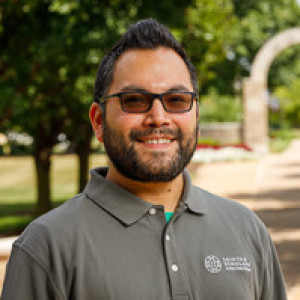
Thursday Jun 30, 2022
Ep 141 - Louis Albarran and the Faith of Real People
Thursday Jun 30, 2022
Thursday Jun 30, 2022
- Paul and Bill spoke with Louis Albarran, associate professor of theology at Holy Cross College in Notre Dame, IN. Albarran holds a master’s degree and a Ph.D. from the University of Dayton, and he specializes in the connection of religion, culture, and the physicality of devotional practices, with a focus on the Latino Catholic culture.
- Albarran spoke of the story of Our Lady of Guadalupe, as told by the Aztec people in their own language. The name of this narrative is Nican Mopohua.
- Albarran spoke of the Dayton school of thought regarding the meaning of Catholic devotions for culture. He referred to Thank You, St. Jude, written by Robert Orsi. [Paul cannot help adding a reference to St. Jude by Brian Setzer.]
- Currently reading: Making Culture by Andy Crouch.
- The annual “Saints and Scholars” summer program for high school students on the Holy Cross College campus is directed by Albarran.
- Peter Kreeft and Christopher Baglow offer notable perspectives on the compatibility of science and religion.
- Holy Cross College’s Moreau College Initiative grants degrees to prisoners.
- William Cavanaugh wrote about the wars of religion and the rise of the nation-state. Peter Kreeft wrote a condensed Catholic catechism. Kenneth Miller wrote Finding Darwin’s God. Aldous Huxley wrote Brave New World.

Monday Mar 28, 2022
Ep 138 - Darcia Narvaez, Insights About Humanity for a Suffering World
Monday Mar 28, 2022
Monday Mar 28, 2022
- Darcia Narvaez, who holds a Ph.D. in psychology from the University of Minnesota, is a prolific public intellectual who uses many tools of multimedia communication to do research and to address needs of everyday people. Her work enhances and taps deeply rooted wisdom about human nature so that it can be applied in everday tasks, such as parenting.
- She is a Professor of Psychology Emerita at the University of Notre Dame. Links to much of her work can be found at her personal website, as well as her Notre Dame faculty site.
- A capstone of Prof. Narvaez’s interdisciplinary scholarship is her 2014 book, Neurobiology and the Development of Human Morality: Evolution, Culture, and Wisdom. See her summary of the book.
- She received the Expanded Reason Award, a distinctive salute to innovative research in the spirit of Pope Benedict XVI, in 2017. The honor is bestowed by the Benedict XVI Vatican Foundation.
- In recent years, she has invested much research in a source of useful insights for families drawn from the concept of a nest for children that humans have inherited from their ancestors. Learn more about this work at org and evolvednest.org.
- Also see her blogs, including one she writes for Psychology Today.
Paul and Bill have interviewed Darcia Narvaez previously in episodes 55-56 and 96.
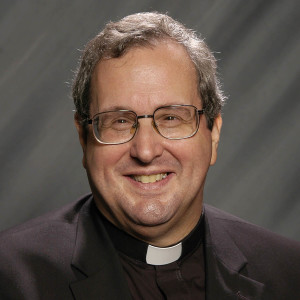
Monday Dec 20, 2021
Ep 135 - A Visit to the Universe of Fr. Robert Spitzer, SJ
Monday Dec 20, 2021
Monday Dec 20, 2021
- Paul and Bill were privileged to talk with Father Robert Spitzer, SJ, the founding director of the Magis Center in Orange County, California.
- Father Spitzer’s biography includes service as the president of Gonzaga University and the authorship of numerous books about various aspects of theology, philosophy, spirituality, apologetics, happiness and the meaning of life, and much more.
- He has produced a huge collection of materials for online use. His main websites are the Magis Center site, com, and PurposefulUniverse.com. In this interview, he describes the sites and how our listeners can select and use materials that may be particularly helpful.
- We discuss the four levels of happiness, which represent an insightful roadmap for spiritual growth and movement toward a culture of life. His excellent book, Healing the Culture, gives a good grounding in this approach.
- Another area of special interest for Father Spitzer is the compatibility of appeals to science and faith—which is also a basis for this TSSM podcast series. In this interview he notes that younger scientists are statistically more likely to believe in God than scientists over age 40.
- Young people don’t know what’s going on in current science, in studies of near death experiences, scrutiny of the Shroud of Turin, and many other areas of research that contribute to religious faith. A good grounding for his work connecting science and faith in Jesus Christ is New Proofs for the Existence of God .
- Yet another area of deep interest for Fr. Spitzer is the need for a full appreciation of, and deep personal engagement with the summit of the Catholic faith, the Holy Eucharist. In this interview, he refers to the John 6:30-52 as a portion of Scripture that powerfully asserts the Catholic understanding of the Blessed Sacrament as the body and blood of Christ.
- You can see Fr. Spitzer on EWTN in his weekly series, “Father Spitzer’s Universe.”
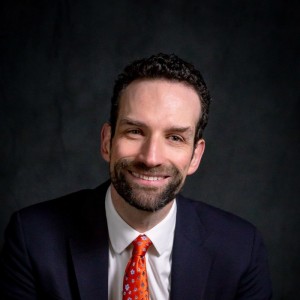
Monday Aug 23, 2021
Ep 131 - Jordan Wales and the Moral Theology of AI
Monday Aug 23, 2021
Monday Aug 23, 2021
- Jordan Wales, PhD, who teaches theology at Hillsdale College in Michigan, spoke with Paul and Bill about his research at the intersection of robotics and religion.
- He discussed a compelling concern in the future relationship between human beings and technology. In particular, the concern, about which he spoke at the 2021 conference of the Society of Catholic Scientists, dealt with the interaction between individuals and the entities Wales calls “apparently personal artificial intelligence” (APAI).
- APAI products are already becoming commonplace in the world of commerce, as this BBC article discusses. People will be increasingly able to purchase, and interact with, virtual friends or babysitters or therapists, for example, Dr. Wales pointed out.
- This raises moral questions related to personhood, covering both the APAI product and the user of that product. The product will not have an inner life representative of what we think of as a person, although the definition of person has an interesting history influenced by scholars such as Saint Augustine. Human beings can express and influence their own understandings of personhood through their interactions with APAI. These understandings may lead to various types of interaction, ranging from pride and manipulation to excessive empathy, and one middle ground would consist of appreciation for the humanity that underlies the production and information/formation of the APAI product, Dr. Wales pointed out.
- As the use of APAI grows, there are also concerns about how the aggregated human “input” into the experience of APAI personalities may cause a flattening-out of human perspectives on the unique qualities of each person. One current example of the trajectory for these concerns comes from the use of the auto-correct feature by Google for writing. Long-term possibilities include such features of interactions not only affecting our choices of words and expressions, but also influencing what subjects we think about and how we think about them. This highlights the moral principle that ultimately we must retain our unique personal identities and wisely discern how to exercise our responsibility and restraint in allowing some possible applications of APAI to influence us, Dr. Wales said.
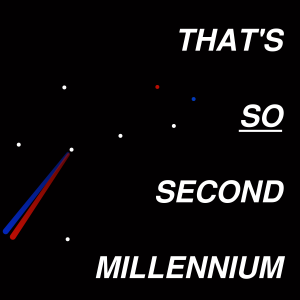
Monday Mar 22, 2021
Episode 122 - Original Sin and Mental Unhealth
Monday Mar 22, 2021
Monday Mar 22, 2021
Paul and Bill discuss some of the ways in which human minds go wrong. Paul wonders aloud whether the state of spiritual disconnection called "original sin" is specifically manifested in the ways parents relate, or don't relate, to children and the problems that follow from that for the rest of our lives. We discuss Henri Nouwen (a little) and Eckhart Tolle (a little more) and his ideas on how enlightenment has cropped up here and there throughout history but gets suffocated by social conformism.
- Paul and Bill discussed a number of resources for pondering the nature of sin and how it affects our lives—as well as how people act based on their perceptions of sin in themselves and others. Without the Church’s wisdom and reliance on Christ’s grace, behaviors based on a misunderstanding or dismissal of sinfulness can distort our lives as individuals, in our minds and hearts, as well as our lives in society.
- The co-hosts concluded that we need to invest time throughout our lives to discern how sin—and a need for forgiveness and grace which is poorly grasped in secular society—in integrated in our mental and spiritual health. We cannot just set aside the matter of original sin and our ongoing inclination toward evil. We tapped into the Catechism of the Catholic Church, especially the paragraphs around #400 and beyond, for guidance to sort this out.
- Such guidance is important in countless cases, such as reflection on Jesus’ teaching on separating the sheep and the goats in Matthew 25.
- We discussed The Blank Slate by Steven Pinker.
- Paul spoke of being pointed toward books by Henry Nouwen and commentary by Eckhart Tolle, a popular proponent of new-age syncretism with echoes of Christianity and Buddhism. He also spoke of exploring life-solutions propounded in EMDR therapy.
- He mentioned having found useful insights when exploring that therapy through Francine Shapiro’s Getting Past Your Past.

Wednesday Oct 28, 2020
Episode 112 – A Happy Medium: By What Means?
Wednesday Oct 28, 2020
Wednesday Oct 28, 2020
-
Paul and Bill focused on the 2020 elections as a point of tragically little focus in discourse or reasoning—but a good starting point for wide-ranging conversation about humanity’s desperate search for balance, hope, and sustainability in our hearts and minds. The desire for a higher wisdom—a happy medium, a golden mean—has always been complicated by our focus on ourselves and our temptation to believe that we know best, the co-hosts pointed out. Bill pointed out that “fake news” was said to have made its first appearance in the Garden of Eden, courtesy of the serpent; that comment was made by Pope Francis in his 2018 reflections for World Communications Day.
-
Society is operating in a state of radical uncertainty and unsustainable indebtedness among persons, but we forget the stabilizing recognition that we share an indebtedness to God—a responsibility to Him as our source and our only reliable resource. We have forgotten a lot about this, leaving us not only lost, but facing a steep price to pay as God’s children, Paul said. He referred to the story of King Josiah’ realization that he and his people had strayed from the laws of the Torah.
-
People seeking personal goodness and the common good know we have made serious mistakes on our journeys and have perpetuated ignorance and poor judgment. Each successive generation has been left unprepared and unable to make difficult decisions that would point toward healing. Bill recalled G. K. Chesterton’s call for a nation’s responsibility to wisdom that whatever wisdom was being handed down via what he called “the democracy of the dead.”
-
But such respect for tradition is not one of humanity’s strong points. Paul pointed out that our podcast’s name points to a second millennium whose second half was marked by major departures from tradition for the sake of greater human creativity. The co-hosts discussed how any attainment of a golden mean has been lost in the pursuit of collaborative innovation—even though we fail to hone our ideas as humble learners and listeners. Meanwhile, any instinct to hold fast to the tried and true only traps us in cocoons of misguided, comfortable assumptions. The artificial “communities” we belong to through our digital culture are places not of roots which allow us to grow, but of simplified labels which mimic understanding, Bill said. He was drawing upon concerns about internet trends voiced by Pope Francis in his 2019 message for World Communications Day.
-
Our political system does not encourage any sustained, constructive dialogue between the old and the new or between fresh, authentic perspectives. Paul pointed out that we are not presented with real choices despite the fact that parties and partisans paint themselves as sharply different. And Bill pointed out that one are of common ground so many leaders share is the use of pessimism and fear. He recalled the presidential campaigns where candidate Biden spoke of a dark winter ahead and candidate Trump portrayed himself as the alternative to anarchy and economic despair.
-
When an incomplete knowledge of history leads to despair about the past and present of a society, it can seem like the structures undergirding that society are held up more by mass psychology than real accomplishments or aspirations, the co-hosts said. Our culture likes to exalt creativity in principle, but have we made it easier to see connectivity and possibilities, Paul asks. Bill, proving his fascination with papal teachings for World Communications Day, would point out that the 2020 message of Pope Francis highlights our need to pass along hopeful stories from generation to generation that begin with our dynamic, hopeful relationships with God. Paul reflected on how our childhoods do not always prepare us for the kinds of pursuits entailed in the career pursuits and panoramic interests of adulthood. In a world of limited, utilitarian perspectives, it is hard to find happy wanderers with big ideas looking for life’s happy mediums.

Monday Sep 14, 2020
Episode 109 - Psychology & Spirituality of Crisis
Monday Sep 14, 2020
Monday Sep 14, 2020
A solo episode from Paul. These are the notes I used... the audio is balanced differently.
Insight by Bernard Lonergan and 20/20 hindsight.
What else (besides the coronavirus and similar epidemics) are we not preparing for? Can we? We can't know all the unknowns, and it is somewhere between difficult and impossible to quantify the risks even for the things we can anticipate. Yet quantification is reasonable and laudable because individual lives do matter... the 1,000,001st victim of a tragedy just as much as the first.
Problem areas:
Education and the bureaucratic / engineering mentality "we already know everything we need to make a decision" and "let's do something to make it look like we're doing something."
Finance and the herd mentality. Bullwhip chains of overreaction in the face of unknown risks. A reacts semi-rationally to the situation, B overreacts to A's reaction, C overreacts to B, etc. Federal forgiveness, however good in itself, has the side effect of blinding banks to their own internal information channels regarding default rates, etc. Banks are looking around at employment figures and other data, guessing what to do, overreacting, looking at their peers and emulating the most extreme.
There are a lot of really tired people working in logistics right now.
Job seekers giving up due to pessimism and the difficulty in thinking statistically. It's hard for me to go ahead and spend the effort to do something when I know its individual success rate is well under 50%. Now things are worse. All that means is that more repetitions will be needed to achieve success. However, it is easy to fall into the fallacy of "it was hard before but worth trying; now it's harder and therefore not worth trying," making an all-or-nothing qualitative proposition out of something that in its nature is gradational and quantitative.
Hope really is a virtue.
Audio editing by Morgan Burkart.

Monday Jul 27, 2020
Episode 106 - Beyond Heisenberg, the Principal Uncertainty
Monday Jul 27, 2020
Monday Jul 27, 2020
...or as Paul wanted to put it, "Lies, D--d lies, and p-values."
- This episode contains a conversation between Paul and Bill in which you’ll learn new things about their experience in particular fields—geology and journalism, respectively—and where their zeal to harvest and connect information bumps up against troublesome uncertainty. You’re accustomed to hearing us as podcast co-hosts, sharing our opinions and our interviews with experts to explore insights at the intersection of science, everyday human experience, and the values of theology and philosophy. We welcome an audience that, like us, hungers to understand the details that well-informed research provides—in light of the wonder, mystery, and uncertainty that we complex human creatures provide. We embrace deeper and broader consideration and communication, and these values feed into our “day jobs,” which involve writing, teaching, consulting, and more.
- Paul’s efforts to dig more deeply into the methods of purposeful scientific learning recently prompted him to enroll in a data-science “boot camp”—an intense, 12-week course offered by an organization called Metis. He wants to extract every bit of value from the oceans of data generated in this world. Or at least he wants the value that will serve his own colleagues and clients as he tackles projects and secondarily adds content to “Dr. G’s Blog,” named for him—Dr. Giesting. One of his guiding maxims is mentioned here: “No Data Left Behind.”
- (Testifying to the diversity of the “That’s So Second Millennium” duo, Bill likes to focus on story-telling for clients to describe various accomplishments of science and values, sometimes faith and reason. And he’s writing in his OnWord.net blog these days about crucial times in our world today that will require rich knowledge and deliberation alongside problem-solving strategies marked by prudent, civil, inclusive dialogues and inquiries. This is an example of the approach he’s formulating. But today’s podcast draws its energy mostly from the Paul’s recent ruminations.)
- Those thoughts include a look back at something called the “p-value.” Their discussion of p-values in the world of scientific statistics led Paul and Bill into consideration of the co-existence of intellectual rigors necessary to the practice of research and unavoidable uncertainties inherent in the real-world application of data-driven knowledge. That co-existence of firm principles and subjective interpretation turns out to be a phenomenon that both co-hosts have experienced in their respective fields. They agreed that the pursuit of more and more data, nurtured by practicality and idealistic values, is a beautiful thing, but it’s not always possible. In many cases where a specific project is choosing and using a finite set of data, the consumers of scientific or journalistic information have reason to quote the skeptic’s famous aphorism that “there are lies, damned lies, and statistics.”
- Bill cited examples from the past reporting of political polls, which too easily can neglect important nuances that should influence an audience’s interpretation. Both Bill and Paul noted that, during the Covid-19 crisis, the public is seeing science and its generation of statistics play out in real time, with massive policy implications, and the practice of “objective” science now seems to many people as iffy and subjective as theology-based interpretations of the world. That’s ironic since observers have said the availability of scientific certainty and experiential knowledge has driven them away from religion as a poor, mythological substitute for reality.
- Neither co-host called for a dismissal of the knowledge gained through religion, philosophy, or statistics; after all, in many policy matters surrounded by uncertainty, statistics are a huge part of the guidance empowering human reason. But there is much going on behind the scenes at every point in a statistics-driven exercise, with some of that context warranting caution in our binary decisions about importance and implementation. Paul acknowledged that he encountered this in preparing his capstone report for the Metis data-science program. Scientists have grappled with ways to assess the validity of some data, the replicability of some experiments, and the dominance of some assumptions about statistical analysis. Indeed, the “p-value” suggests good examples of doubts that have arisen.
- This podcast discussion did not unearth any solutions for doubts about statistical findings, but it did prompt a meeting of the minds. Both the scientist and the journalist determined that all of us seeking to optimize understanding for reasonable policies and practices must continue our zealous pursuit and values-informed stewardship of data.
Image by Oberholster Venita from Pixabay

